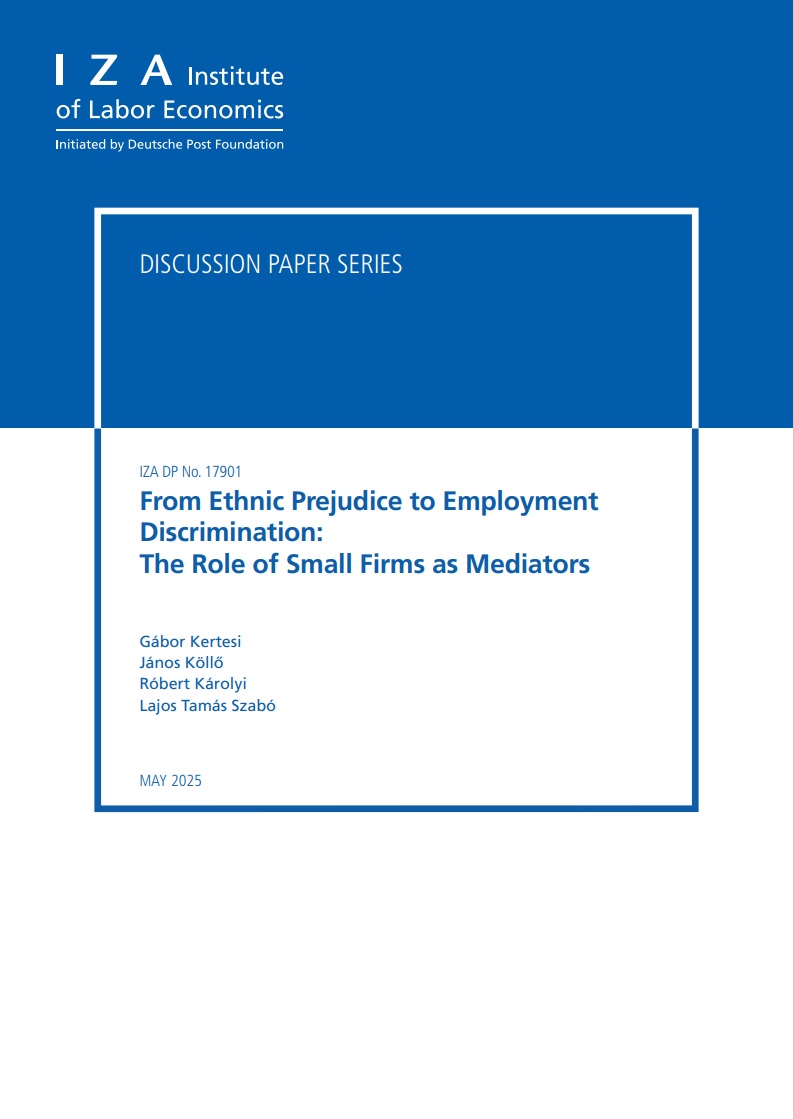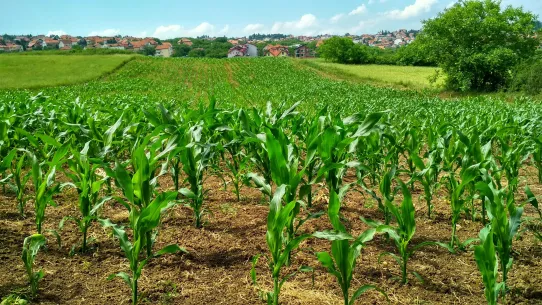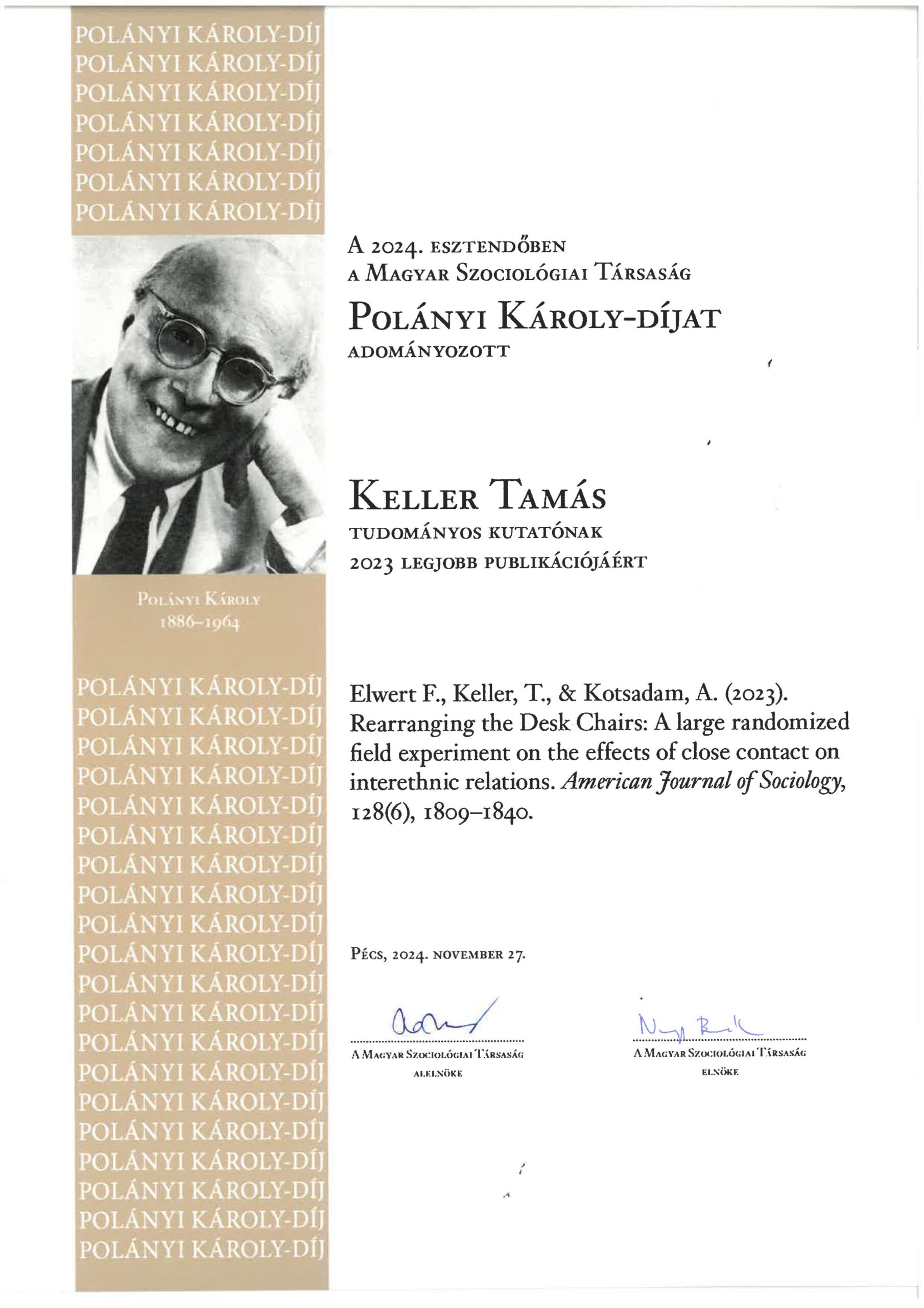How to encourage people to follow a climate-friendly diet? Increase social cohesion!
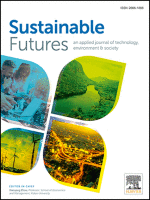
Zsófia Benedek – Lajos Baráth – Imre Fertő – Zoltán Bakucs Sustainable Futures, Vol. 10. Art. No. 101106 (2025) Abstract Reducing meat consumption is increasingly recognized as a necessary strategy for mitigating climate change and improving public health. While motivations to reduce meat intake are well documented, few studies have integrated these with basic human […]
Apportionment methods in resource allocation
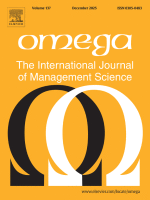
László Á. Kóczy – Tamás Koltai – Balázs R. Sziklai Omega, Vol. 138. Art. No. 103403. (2026) Abstract The efficient use of resources is of paramount importance in any organization, and this is especially true of the use of human resources. We are considering an organization with a fixed number of workers over a network […]
Beyond the degree : fertility outcomes of ‘first in family’ graduates
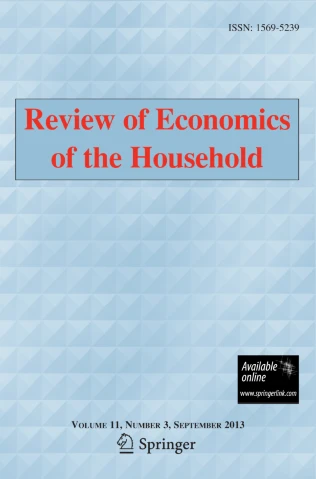
Anna Adamecz – Anna Lovász – Sunčica Vujić Review of Economics of the Household (2025) Abstract This paper examines the link between higher education and fertility, paying particular attention to the role of intergenerational educational mobility in shaping this relationship. Drawing on data from the 1970 British Cohort Study, we estimate differences in completed fertility across […]
Immigrant-native pay gap driven by lack of access to high-paying jobs
Are Skeie Hermansen – Andrew Penner – István Boza [et al.] Nature (2025) Abstract Immigrants to high-income countries often face considerable and persistent difficulties in the labour market, whereas their native-born children typically experience economic progress. However, little is known about the extent to which these immigrant–native earnings differences stem from unequal pay when doing […]
Navigating AI-Driven Financial Forecasting: A Systematic Review of Current Status and Critical Research Gaps

László Vancsura – Tibor Tatay – Tibor Bareith Forecasting, Vol. 7. No. 3. 49 p. (2025) Abstract This systematic literature review explores the application of artificial intelligence (AI) and machine learning (ML) in financial market forecasting, with a focus on four asset classes: equities, cryptocurrencies, commodities, and foreign exchange markets. Guided by the PRISMA methodology, […]
Do diversity and context collapse kill an online social network?
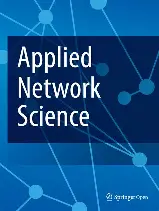
Júlia Koltai – László Lőrincz – Johannes Wachs – Károly Takács Applied Network Science, Vol. 10. Art. No. 26. 20 p. (2025) Abstract Our social lives consist of various circles, such as family, friends, and colleagues. Differences in norms and expectations among these circles can create tension in large online social networks (OSNs) due to […]
Artificial Intelligence for Agricultural Extension: Supporting Transformative Learning Among Smallholder Farmers
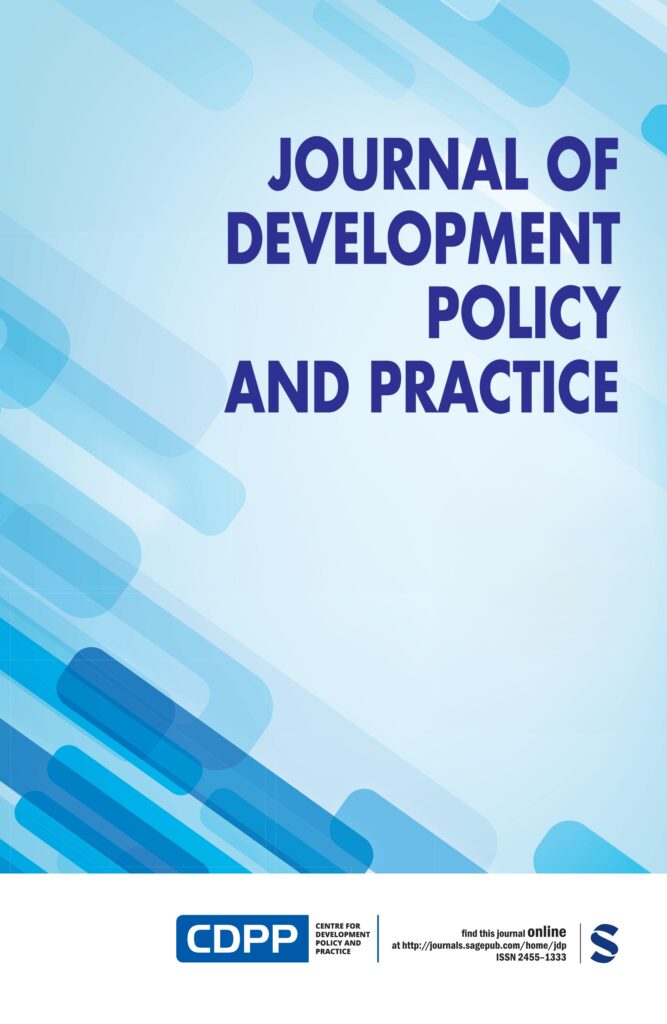
Chris High – Namita Singh – Gusztáv Nemes Journal of Development Policy and Practice, Online First First published online July 4, 2025 Abstract Small and marginal farmers face intersecting challenges related to food security, environmental risk and structural disadvantage. Agricultural extension has historically played a central role in supporting these farmers, with evolving approaches that […]
Heat, health, and habitats: analyzing the intersecting risks of climate and demographic shifts in Austrian districts

Hannah Schuster – Axel Polleres – Amin Anjomshoaa – Johannes Wachs Scientific Reports, Vol. 15. Art. No. 22812. 12 p. (2025) Abstract The impact of hot weather on health outcomes of a population is mediated by a variety of factors, including its age profile and local green infrastructure. The combination of warming due to climate change […]
Supply-demand price decoupling in European-type day-ahead electricity markets
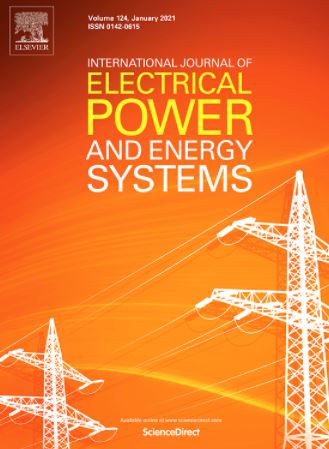
Anita Varga – Botond Feczkó – Marianna E.-Nagy – Dávid Csercsik International Journal of Electrical Power & Energy Systems, Vol. 169. Paper No. 110788 (2025) Abstract In this paper, we consider the possibility of supply–demand price decoupling in European-type day-ahead electricity markets, considering also the possibility of the supply price exceeding the demand price for […]
Value chains for sustainable mountain development: a qualitative understanding of 23 European cases
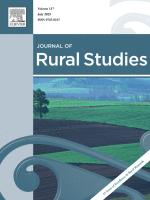
Kirsty Blackstock – Rachel Creaney – Mar del Mar Delgado-Serrano – Sharon Flanigan – Corrado Ievoli – Michele Moretti – Gusztáv Nemes et al. Journal of Rural Studies, Vol. 118. Paper No. 103640 (2025) Abstract This paper presents findings using a novel, qualitative and interpretative approach to value chain assessment. The approach was used to further […]
Mobilizing Rural Support: Targeted Government Spending and Democratic Backsliding in Hungary
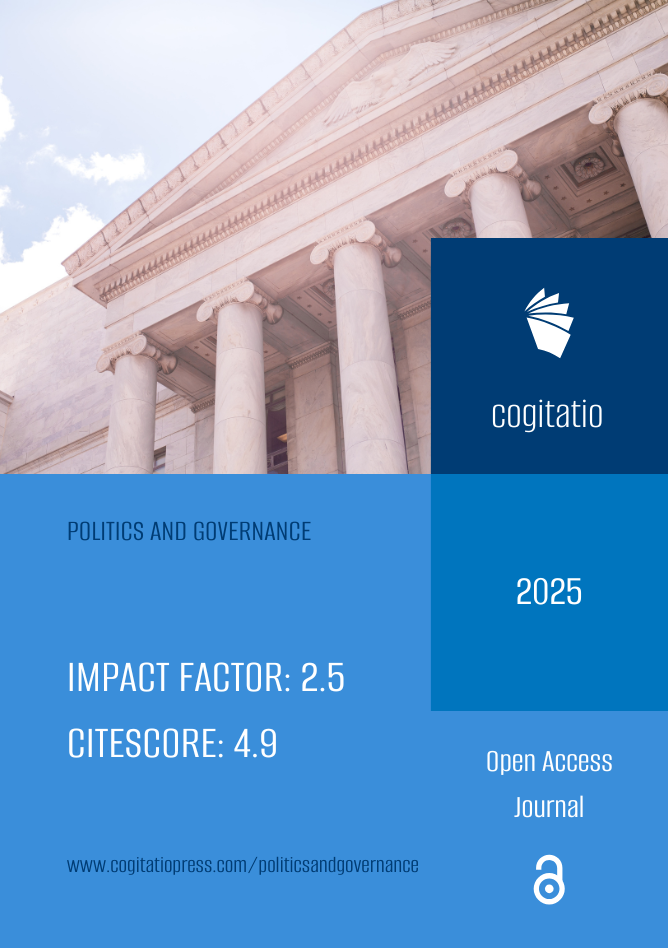
Krisztina Szabó – Ádám Reiff Politics and Governance, Vol. 13. Art. No. 9542 (2025) Abstract The spread of democratic backsliding has drawn scholarly attention to the strategies and approaches characteristic of these regimes. However, our understanding of targeted government spending programs designed to favor specific segments of society to build and reinforce a loyal support […]
Reducing Food Loss: Post-harvest Strategies at the Small Scale

Zsófia Benedek – Katalin Kujáni – Judith Molnár Eurochoices, Early View, First published: 19 May 2025 Summary This article examines post-harvest technologies and practices tailored to small-scale operations, highlighting their potential to reduce food loss. A comprehensive approach to conceptualising post-harvest technologies is proposed across various stages of the value chain. By categorising solutions into […]


